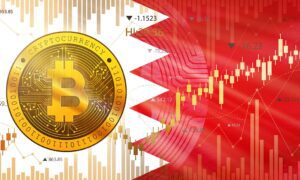While having diversified assets is important, good luck trying to pay for your car repair with a share in a company or long-term position on an exchange. To cover your day-to-day expenses, you need real-usable money (cash).
Naturally, you don’t have to keep all your money in cash. As long as you have assets that you can quickly convert to cash, this is just as good. Now, while every asset can be sold relatively quickly, it wouldn’t be fair to consider… let’s say, a land lot, a liquid asset. Some assets are just more liquid than others.
With that in mind and without further ado, here are the top seven most liquid assets you could own.
1) Cash
It wouldn’t be unfair if we didn’t start this list with cash. Cash is a primary liquid asset, and other assets get their liquidity evaluated based on how quickly they can be converted into cash. It’s an asset that quickly converts you into goods, services, or other assets.
If you have cash, you can use it immediately, which is the most important liquidity market. Also, cash-to-asset is the quickest way to make this exchange if you’re buying an asset. Also, even when paying electronically, transaction costs are usually lower for cash purchases.
One more thing worth mentioning (as well as a trait that will hold with just one more asset on this list) – is that cash is physically accessible. You can have physical notes in your hand, bag, or wallet that you can use at any financial institution. While today’s technology is more reliable than ever, some would still prefer not to depend too much on it.
2) Blue-chip equities
Blue-chip equities are accessible on some of the most reliable trading platforms. They’re listed on stock exchanges, and selling them online and offline is easy. All you need is a broker (a contact you already have as an investor in blue-chip equities).
These equities have some of the highest trading volumes in the field, which makes for substantial market capitalization. With such a deep pool of buyers and sellers, it will never be too difficult to convert your assets into a more liquid version (ash).
Perhaps the biggest advantage of blue-chip equities (as an asset) is transparency. They’re always under the looking glass, and hiding anything regarding these major companies is nearly impossible. Oversight of your assets is a huge part of liquidity and something you shouldn’t ignore.
3) Cryptocurrencies
While cryptocurrencies can be considered liquid, their liquidity depends on many factors. For instance, if a token is on more exchange listings, it’s easier to find a place to sell it. Higher trading volume means higher liquidity.
Just bear in mind that this is the feature that some of the new tokens may lack. According to Technopedia, many new tokens and meme coins give you a chance of early adoption, but this isn’t necessarily the way to get a high-liquidity asset. So, when aiming for liquidity, you’re better off investing in established coins like Bitcoin or Ethereum.
Market volatility and trading volume are also important regarding the liquidity of any given asset. When buyers and sellers are more cautious (due to high volatility), the asset will be less liquid. This is just one of the reasons why diversifying (even your liquid assets) is so important.
4) ETFs
ETFs are assets similar to stocks. The biggest difference is that they consist of multiple underlying assets, giving their user a simulation of a diversified portfolio. Imagine a scenario where you could buy a miniature sample of an already diversified portfolio instead of diversifying your portfolio manually. This is what ETFs are all about.
These assets are exchange-traded, meaning you have a straightforward way of exchanging them for cash. In the majority of cases, all you have to do is go to your trading platform and click the button – SELL.
You can exchange underlying ETF assets for shares when you want to use your ETFs to buy shares. You could also do it the other way around, making this asset liquid in another, less expected way. This active secondary market gives you another option and another layer of financial security that you could dip into should the need arise.
5) Foreign currencies
While foreign currencies are cash in their country of origin, they can be considered liquid assets even in a different place. First of all, they’re incredibly convertible. You can use your mBanking app or go to an exchange and walk out, cash in hand, in a matter of minutes (in case of a mBanking in seconds).
Foreign currencies are globally accepted, especially major ones like EUR, GBP, or USD (depending on your current location). Foreign exchange markets are quite active, and they operate around the clock. The fact that they’re updated in real-time makes all the difference in the world.
You can keep some of your assets in these reserve currencies for security. Namely, different political or social occurrences may drive a currency one way or another. For instance, after Brexit, the value of GBP decreased, but USD and EUR didn’t suffer as much. In a way, this can be your safety net against political and economic instability.
6) Precious metals
Previously, we’ve talked about just two assets that are physically accessible. You can take a gold coin/bullion, put it in your bag, and sell it at the nearest venue that buys gold. It has a global market presence and value spanning its entire history. It’s universally accepted, used, and recognized.
Gold is a standardized product as long as it’s in bars and coins. Even in the form of used jewelry, the value of some of these pieces will be determined according to the weight of the piece. This is because gold has intrinsic value, regardless of the piece’s age, state, or shape.
At any time or place, people are always willing to buy gold. This is why it’s present in high trading volumes and has so many market participants. In some cases, gold, silver, platinum, and palladium investments can be hedged against inflation. Some even argue that going off the gold standard is what ruined fiat currency, to begin with.
7) Stocks
Stocks are publicly traded assets, which means you can sell them without much trouble if you have the mechanisms to buy them. You can do this Through online brokerage platforms in a matter of minutes (also counting the procedure and commands you have to use). The market works during regular trading hours; during these hours, you can sell and buy these assets in real-time.
Another important thing many people ignore is that this market is well-regulated. This provides an extra layer of legal protection and curbs the risk on all your investments. Also, these regulations work for both the market and the exchanges you’re working with.
The most important thing to bear in mind (and the reason why stocks are so low on this list) is that the liquidity of individual stocks can vary. Sure, stocks are generally regarded as liquid assets, but their level of liquidity is not universal across the board.
Either keep a part of your money in cash or in an asset that you can quickly convert to cash
You only have the money you can immediately use when it comes to day-to-day and emergency expenses. The thing is that while it’s great for your affluence to make long-term investments, you cannot ignore your short-term needs and financial obligations. Investing in liquid assets will help you get the best of both worlds.



































